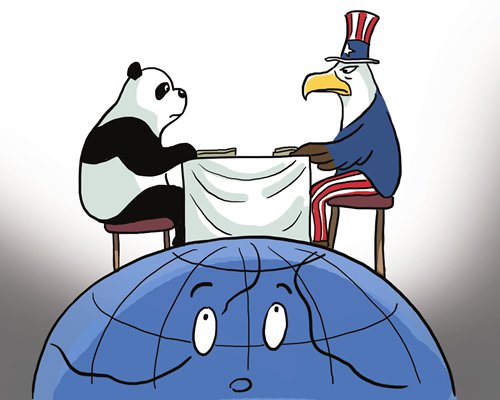
On Feb. 21, 1972, United States President Richard Nixon arrived in Beijing, ending more than 20 years of deep hostility between China and the U.S., including a multiyear armed confrontation on Korean soil. Washington and Beijing needed this rapprochement for several reasons: the first, to minimize the exit costs of a long and debilitating war in Vietnam; the second, to dissuade the Soviet Union from a war that was becoming increasingly likely.
The result of this first high-level meeting was the launching of a veritable spiral of rapprochement. Implied was Beijing’s tacit recognition of American leadership in the Asia-Pacific region, as well as the reestablishment of diplomacy in 1979.
In this way, the U.S. facilitated economic and international positioning of the Beijing government, supporting its technological development and its entry into the World Trade Organization in 2001.
It was an arrangement that brought great benefits to both parties. China was able to concentrate on its own economic development without worrying about American hostility. The U.S. was able to focus more attention on other regions of the planet, without China testing its leadership in the Asia-Pacific. Moreover, it was a lasting agreement that not only managed to survive changes in governments in both countries but also erased the common threat that had initially brought them together: the Soviet Union.
The roadblocks were many: the repercussions of the 1989 Tiananmen massacre; the controversy surrounding Chinese dissident, Fang Lizhi, between 1989 and 1990; the Taiwan Strait crisis in 1996; Chinese suspicion and fury resulting from the accidental bombarding of its embassy in Belgrade in 1999; and the air incident on Hainan Island in 2001. However, the reciprocal desire to seek understanding and preserve the foundation of the existing peace allowed successive crises to be overcome.
As of 2008, however, a different dynamic began to become palpable. A questioning of American leadership in the Asia-Pacific region was gaining increasing strength in China. The convergence of a set of factors in 2008 served as a trigger for this: the global financial crisis unleashed by the U.S., the bogging down of the U.S. in its wars in Iraq and Afghanistan, the strong boost to Chinese self-esteem resulting from the Beijing Olympics of that year and its capacity to respond rapidly in the face of the economic crisis.
In short, an awareness of their own capabilities and achievements seemed to be in contrast with a perception of an America in decline. The rise of Xi Jinping to power gave a new impetus to this change. His “dream” of a China rediscovering its past greatness has led to an increasingly assertive and questioning attitude toward U.S. prominence in that part of the world.
For Washington, that amounts to China’s ignorance of the agreement patiently crafted and in place since 1972. For China, however, it is a simple observation of “shi,” the ancestral belief in revision of a course of action when opportunities appear. Just as water flows, so do courses of action. Revision of this flow is not only an expression of realism but an imperative to be followed by every sensible statesman.
Thus, a deep cultural misunderstanding underlies the political struggle leading the U.S. and China to a new version of the Cold War. While the U.S. feels betrayed in its decades-long expression of good faith toward China, the latter considers that it is simply adapting to the inevitable flow of events. In essence, it is the clash between static and dynamic visions of political events.
As if the above were not enough to fuel confusion, an additional element has been added. For decades, the U.S. maintained the conviction that the final result of the economic opening initiated in the times of Deng Xiaoping was nothing less than the conversion of that society to the precepts of democratic pluralism and a free market economy. Hence, there was the belief that supporting China amounted to promoting U.S. values.
For China, on the other hand, a multimillennial civilization and state tradition cannot be subsumed by other people’s principles. What Washington perceives as nothing less than a form of deception represents for Beijing a simple reaffirmation of identity.
Disagreement is inevitable.

Leave a Reply
You must be logged in to post a comment.